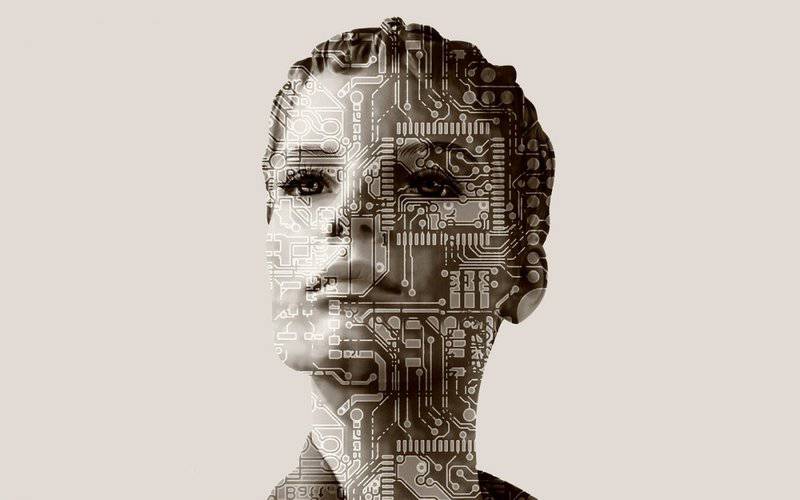Old age could soon be old news, according to a leading futurologist who claims people born after 1970 could live forever.
He predicts that by the year 2050, humans could outlive the constraints of the physical body.
Genetic engineering could be used to extend the body’s life expectancy, by reducing or reversing the ageing of cells.
Advances in AI could lead to android bodies for humans to live in after their own flesh and blood frames have ceased to function.
And virtual reality worlds could be created for people to upload their consciousness into once their bodies have failed.

Old age could soon be old news, according to a leading futurologist who claims people born after 1970 could live forever. He predicts that by the year 2050, humans could outlive the constraints of the physical body
The claims were made by Dr Ian Pearson, an engineer and inventor from Ipswich who lectures on the future of our daily lives, according to The Sun.
The holy grail for genetic engineering, human immortality, has long been a fascination for many, he says.
‘There are quite a lot of people interested in living forever,’ Dr Pearson told The Sun.
‘There always has been, but the difference now is tech is improving so quickly, lots of people believe they can actually do it.’
Dr Pearson says that anyone alive today who survives until 2050 may never have to face death.
He added: ‘By 2050, it will only really be for the rich and famous.
‘Most people on middle-class incomes and reasonable working-class incomes can probably afford this in the 2060s. So anyone 90 or under by 2060.
‘If you were born sometime in 1970 onwards, that would make you 48 this year.
‘So anybody under 50 has got a good chance of it, and anyone under 40 almost definitely will have access to this.’
Dr Pearson claims that there are a number of promising avenues that could allow people to skirt death.

The claims were made by Dr Ian Pearson (pictured), an engineer and inventor from Ipswich who lectures on the future of our daily lives – from work to leisure. He believes that in just over three decades humans will be able to survive forever
One involves using genetic engineering to renew or build new body parts.
Lab grown tissues and organs are successfully being grown for use in transplants to reduce the need for human donors and decrease organ rejections.
Cells age naturally and become less resilient and start failing but with certain techniques some people believe ageing can be reversed.
Dr Pearson says: ‘No one wants to live forever at 95 years old, but if you could rejuvenate the body to 29 or 30, you might want to do that.’
Although improving the human body is a possibility, there are many complications associated with undoing ageing.
A more likely avenue is that we abandon our failing bodies as we age and move into an artificial shell.
‘A long time before we get to fix our bodies and rejuvenate it every time we feel like, we’ll be able to link our minds to the machine world so well, we’ll effectively be living in the cloud,’ Dr Pearson said.
Last week, an exhibition at the World Government Summit in Dubai showcased HIBA (Hybrid Intelligence Biometric Avatar).
HIBA was the result of several studies and concluded that humans would be joined through a ‘collective AI consciousness’.
This international network will allow us to ditch speech and communicate using nothing but thoughts by 2050.

The Netflix series Altered Carbon (pictured) explores similar idea, with people escaping death by storing their mind, consciousness and memories in a computer chip called a ‘stack’ implanted in their spinal column
Dr Pearson took this idea one step further and claimed that we will not only be linked by a computer system in 2050, we will be living inside an android shell when we do.
Human consciousnesses will be uploaded to online servers, and we will able to use any android body to inhabit the real world.
One indicator of progress in this area is the current state of sex dolls, Dr Pearson says, which are looking more human-like with each new generation
In another three decades, they could be extremely lifelike.
Dr Pearson compares using such android bodies as homes for our consciousness to hiring a car.
Rather than travelling to Australia to visit the Sydney opera house, you could download your mind into an android body in the country.
The Netflix series Altered Carbon explores similar idea, with people escaping death by storing their mind, consciousness and memories in a computer chip called a ‘stack’ implanted in their spinal column.
This in-tact stack can be taken out of a dead person and implanted into a new body, known as a ‘skin’.
A similar process would be involved with the robotic bodies he envisages.
The cost of this immortality in a machine will initially be very high, with only the rich being able to afford it in 2050.
Soon after, by 2060, it should be more attainable for middle and working-class individuals.

HOW CAN HUMANS BECOME IMMORTAL?
Source www.dailymail.co.uk


